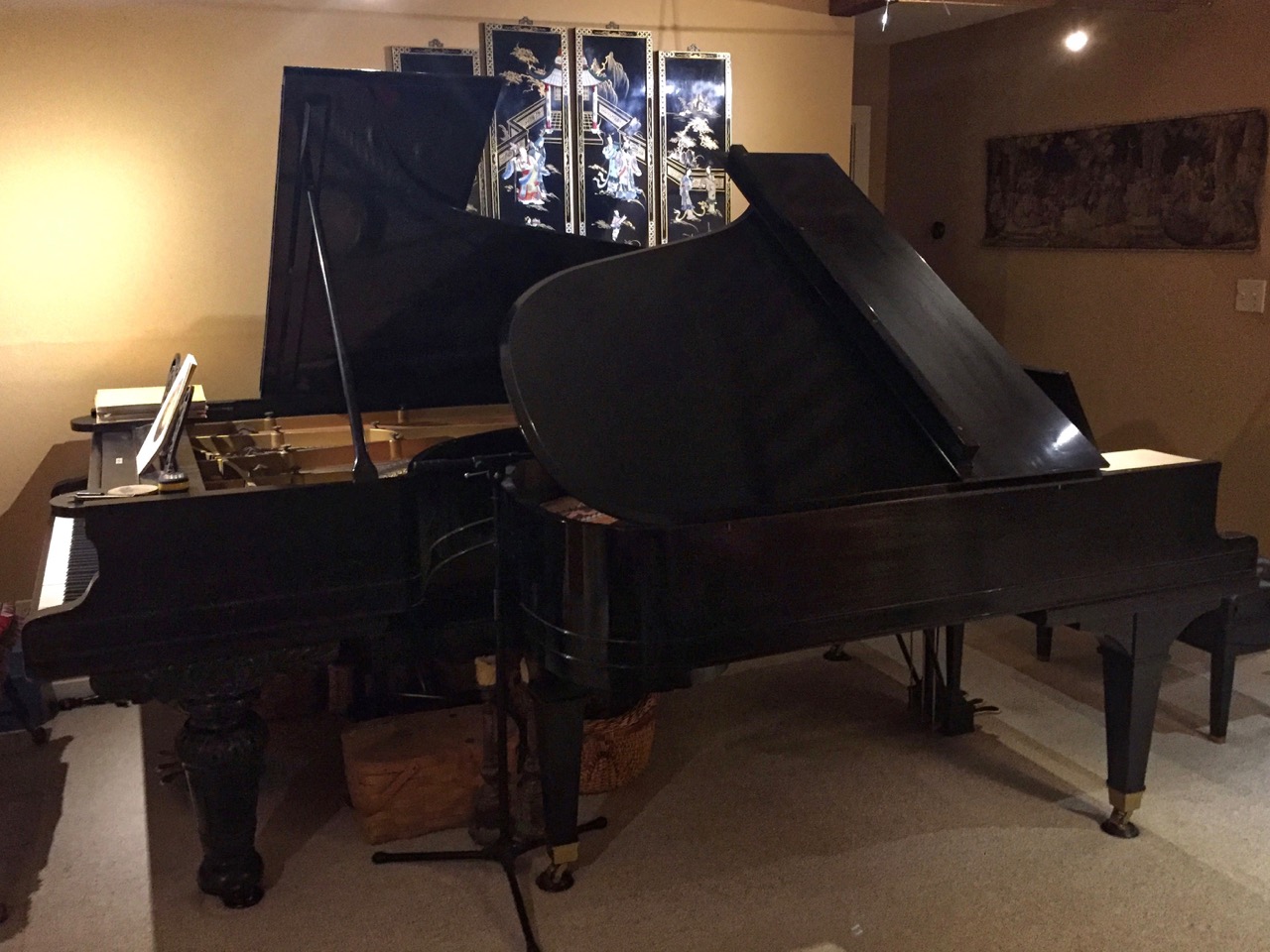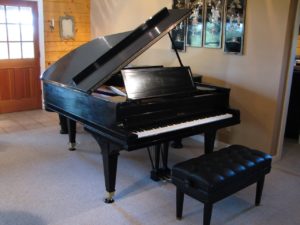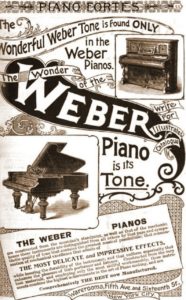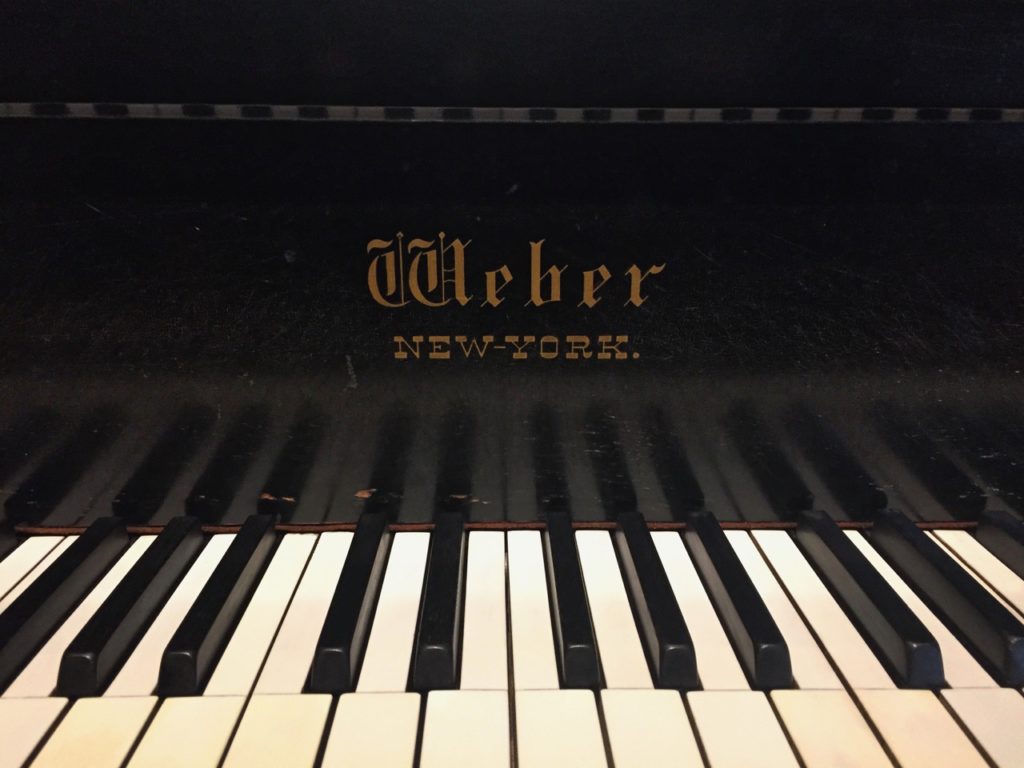Weber Piano Action Rebuild – Early Impressions
With casters installed and a rudimentary understanding of action adjustments, I was able to tinker. Hammer alignment went quickly, and as predicted, the sotto voce pedal now worked properly. Since the rockers were not snugged into their final position, they tended to drift, so I touched up the hammer line and let-off, and put the action back into the piano. It was time to play!
As mentioned in an earlier post, I purchased the piano from the University of Nebraska at Omaha in 1982, and the action was rough even then. As a result, it was difficult to play any sort of nuanced music with mezzo forte being about the softest dynamic possible. Still, I enjoyed playing it since it was the best piano I had ever owned.With its limited dynamic control and worn hammers the piano had a harsh sound. It was brittle-bright in parts of the mid and upper registers while being dull to the point of absent in the highest parts of the keyboard. No wonder I had all but abandoned playing it in favor of the much better Baldwin.
With reconditioned keys, new hammers and the beginnings of regulation, a different instrument was emerging. I was playing it nearly every day — reasoning that would help “settle” everything back into place — and enjoying it. The Weber still sounded somewhat harsh when played with forte and louder dynamics, but the softer sounds, with the new ability to shape them were lovely — especially the octave below middle c and higher. Chopin’s “Raindrop” Prelude (opus 28, No. 15) or the Nocturne (opus 9, No. 1) sounded especially nice.
Pianos are sometimes categorized as “American” or “European” in nature. The American style of grand emphasizes rich harmonic overtones and can be musically played at fff volume levels. European models, on the other hand, emphasize the fundamental tone, producing a thinner and cleaner sound. Also the European pianos sound harsh when played at high dynamic levels with a less musical sound. The 1927 Baldwin definitely has an “American” sound. Was the Weber more “European” in nature? This made some sense if one remembers that the Weber Piano Company was founded by a German immigrant, Albert Weber, Sr., in 1851 and employed skilled craftsmen, some of whom were no doubt European immigrants as well.
There was much work to do, but pausing to enjoy the intermediate results was very satisfying. I found myself playing the Weber almost exclusively now, fascinated by the evolving nature of the instrument. My initial fears that rebuilding the instrument might be a waste of time and money, were gone. The Weber was providing a window into an earlier time, shedding light on the instruments, the artists who played them and the musical practice of a bygone era.



